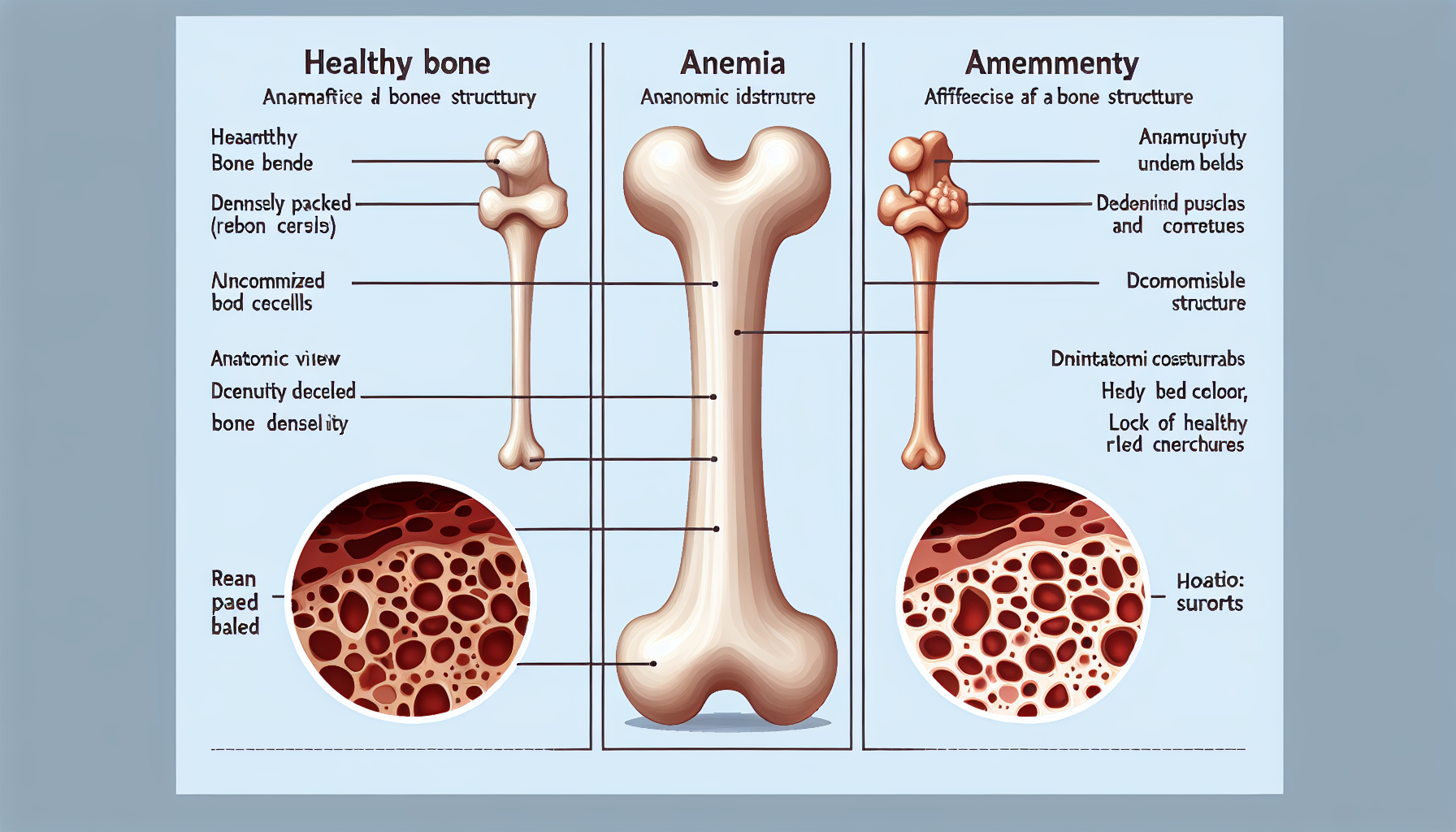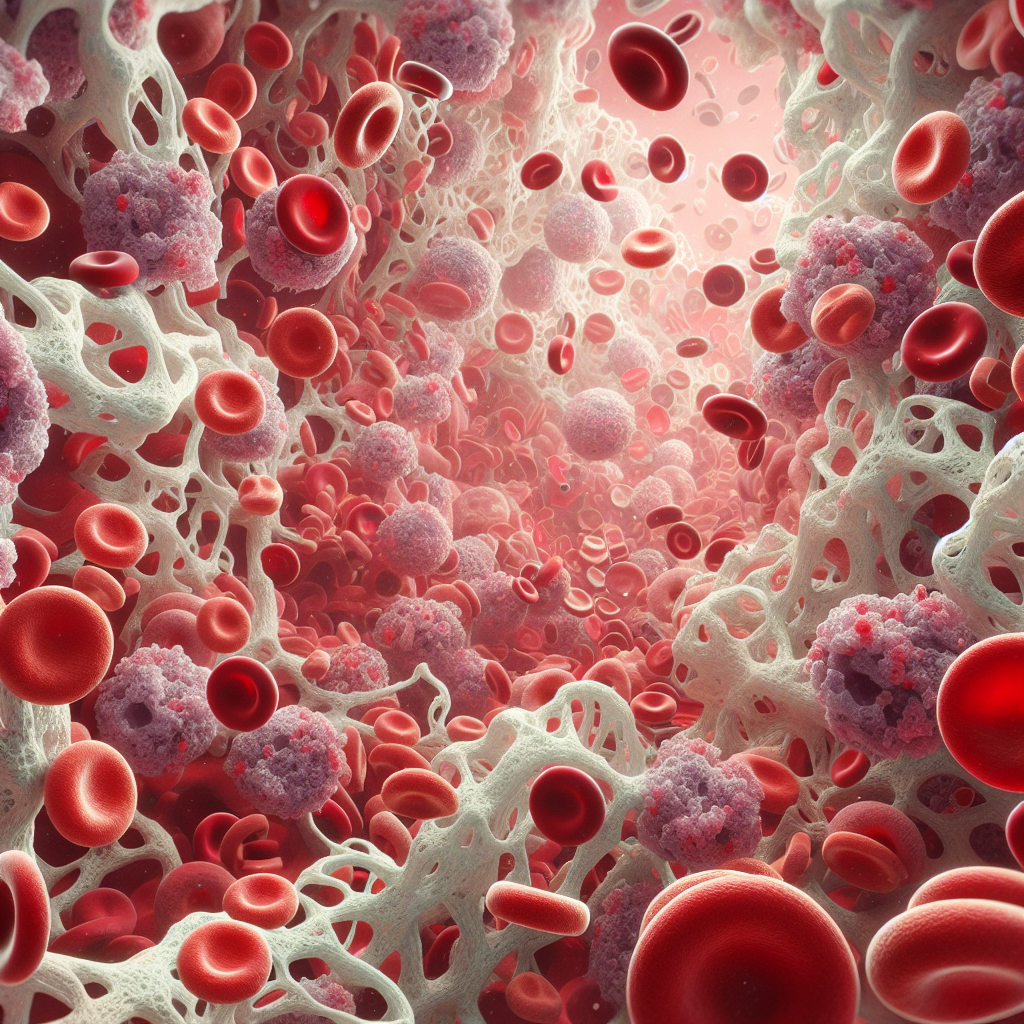Anemia, a condition characterized by a deficiency in the number or quality of red blood cells, is commonly associated with fatigue and weakness. However, its impact goes beyond the blood and circulatory system, affecting various organs and tissues, including the bones. Understanding the link between bone health and anemia is crucial for maintaining overall well-being and preventing the long-term consequences of both conditions.
The Bone-Marow-Anemia Triangle
Our bones are living tissues that constantly regenerate through a process called remodeling. This process is vital not only for maintaining bone density and strength but also for creating a space for bone marrow, where blood cells are produced. Anemia can disrupt this delicate balance in several ways.
Anemia’s Impact on Bone Remodeling
Bone remodeling is a biologically expensive process that requires a significant amount of oxygen and nutrients, both of which are delivered by red blood cells. In an anemic state, the oxygen supply to the bone tissue is compromised, which can lead to decreased bone formation and increased bone resorption, ultimately affecting bone density and strength.
Bone Marrow and Red Blood Cell Production
The bone marrow is the primary site of red blood cell production. Certain types of anemia, such as aplastic anemia, are directly related to bone marrow dysfunction. When the marrow is unable to produce enough red blood cells, it can lead to bone marrow expansion, trying to compensate for the deficit. This expansion can weaken the bones and increase the risk of fractures.
For a deeper understanding of how bone health is foundational to our overall well-being, consider exploring Avix Health’s article on The Influence of Bone Health on Overall Wellness.
The Role of Iron and Erythropoiesis
Iron is a critical mineral for both bone health and the production of red blood cells. It’s a key component of hemoglobin, the protein in red blood cells that carries oxygen. Iron deficiency is the most common cause of anemia and can lead to both insufficient oxygen delivery to the bones and poor erythropoiesis (production of red blood cells) in the bone marrow.
How Anemia Affects Calcium Homeostasis
Calcium is another mineral vital for bone health, and its regulation is closely linked to erythropoiesis. Studies suggest that anemia can lead to alterations in calcium and phosphate metabolism, impacting bone mineralization and potentially promoting bone loss.
To gain insight into the interactions between minerals and bone health, the article on The Interplay of Sodium and Calcium in Bone Health is an essential read.
Nutritional Anemia and Bone Health
Nutritional anemia, resulting from deficiencies in vitamins and minerals such as vitamin B12, folic acid, and iron, can have a direct impact on bone health. These nutrients are necessary not only for red blood cell production but also for the synthesis of DNA in bone-forming cells. Insufficiencies can lead to defective bone remodeling and increased risk of osteoporosis.
Chronic Inflammation, Anemia, and Bone Density
Chronic inflammation, often associated with anemia of chronic disease, can lead to increased bone resorption and decreased bone formation. Inflammatory cytokines can stimulate bone breakdown and suppress new bone formation, contributing to the risk of osteoporosis and fractures.
For a comprehensive look at how chronic inflammation affects the bones, visit Avix Health’s detailed coverage on The Impact of Chronic Inflammation on Bone Health.
External Resources Supporting Bone Health and Anemia
Several niche resources expand on the connection between bone health and anemia:
- Iron’s Role in Bone Metabolism: A study from the Journal of Bone and Mineral Research provides insights into how iron deficiency influences bone biology (Link to study).
- Vitamin D and Anemia: Research on the role of vitamin D in erythropoiesis and its potential implications for bone health is available on PubMed (Link to article).
- Anemia and Osteoporosis: The National Institutes of Health offers a detailed exploration of how different types of anemia affect bone density (Link to NIH resource).
Practical Steps to Support Bone Health and Manage Anemia
Addressing anemia and maintaining bone health requires a multifaceted approach, including dietary changes, supplementation, and lifestyle modifications.
Diet and Nutrition
A balanced diet rich in iron, vitamin D, calcium, and other bone-supporting nutrients is essential. Foods such as leafy greens, dairy products, nuts, and lean meats can provide these crucial vitamins and minerals.
Supplementation
In cases where diet alone is insufficient, supplements may be necessary. Always consult a healthcare professional before starting any supplementation regimen, particularly for iron, as excess can be harmful.
Exercise
Regular weight-bearing and strength training exercises can stimulate bone formation and improve bone density. Additionally, physical activity enhances circulation, which can help alleviate mild forms of anemia.
Monitoring and Medical Intervention
Regular check-ups, including blood tests and bone density scans, are critical for early detection and management of anemia and bone health issues. In some cases, medical interventions such as medication or even bone marrow transplants may be necessary.
Conclusion
The intricate relationship between anemia and bone health is a reminder of the body’s interconnected systems. By understanding this connection and taking proactive measures, individuals can safeguard their health and prevent the complications associated with these conditions. It is always recommended to consult with healthcare professionals for personalized advice and treatment strategies.
To stay informed and maintain robust bone health, continue exploring resources like Avix Health, where comprehensive guides and up-to-date research are readily available.



